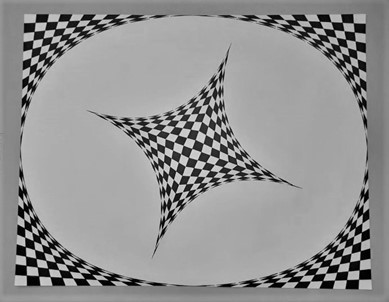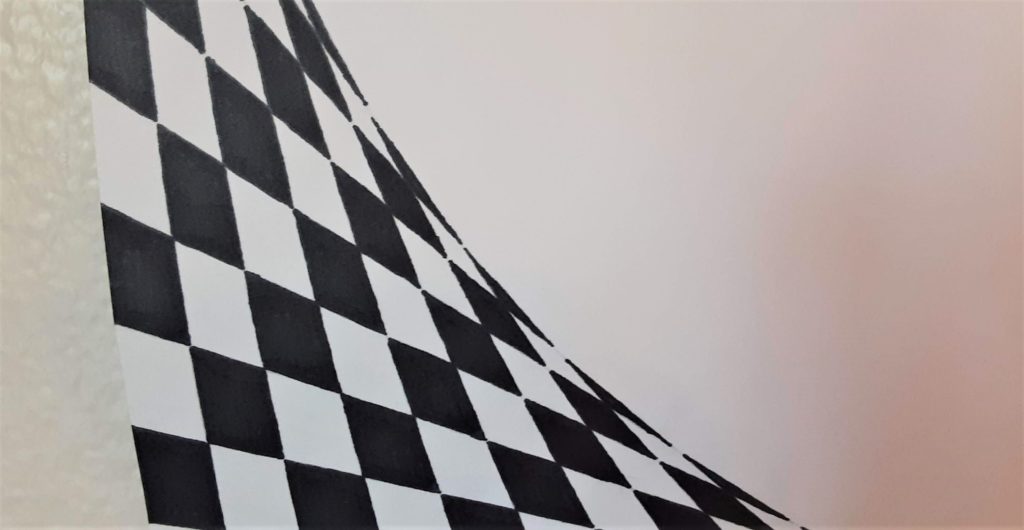
Here’s a piece of art I made this spring:

Zoomed out, it looks great. The overall feel of it is exactly how I intended. It’s a two-dimensional drawing made only with straight lines, but it gives an illusion of 3-dimensional curves.
But here it is zoomed in:

If you get up close, you can see many imperfections in the work: places where I colored outside the lines with my Sharpie, places where the black diamonds got merged together at the corners, places where I left a huge gap between them at the corners, faint pencil marks that I couldn’t fully erase.
To be clear, I’m proud of this piece of art, and I’m not the least bit ashamed of its imperfections. It’s not meant to be viewed up close; it’s meant to be looked at from several feet away, where the optical illusions really pop.
I will strive to be more careful with my next art piece, but I’m still satisfied with this one. As with my own self-improvement journey, I can simultaneously be good enough and becoming better.
All achievements are like this. All of the people you admire too. They look great from far away, and they might genuinely be great, but up close, everything and everyone has imperfections.
How People See You and Your Work
Most people, most of the time, are viewing you and your performances from the zoomed-out perspective. We see the forest, not the trees, let alone the minute imperfections of their bark. We remember the gestalt of the experience, not the little moments of awkwardness.
This happens for several reasons:
- There are too many details to look at, so it’s less taxing to just take in the big picture.
- We’re too distracted by all of the available inputs to pay close attention to your work.
- Most of us are too worried about our own imperfections to pay much attention to yours.

It’s important to keep this in mind whenever you’re putting yourself out there, but it requires a shift in perspective.
While you’re making a thing – whether it’s an outfit, a video presentation, or a dinner – you’ll have to focus on the details. As a result, you’ll be keenly aware of all its imperfections. But the audience you’re making it for won’t. They’ll mostly just see the gestalt. And even if they do notice some imperfections in your work, the thing they’ll remember is the big picture, the overall impression your work gave them.
Advice for Myself
I’m trying to keep this in mind because, right now, we’re in the final stages of planning a wedding.
This involves a lot of details, none of which can be done perfectly. Plus, working within the constraints of time, money, and varied personal preferences, there are many trade-offs to be made. And when you get into the weeds of planning something like this, it’s really easy to slip into perfectionism and get upset about all the things that aren’t exactly how you’d like them.
But here’s the thing.
Nobody will remember all those imperfect details, not even you. The single most common thing people say about their wedding day is, “I barely remember anything. It just flew by.” What everyone will experience is the gestalt of it. They’ll just remember having fun with friends and family.
This is not to say you shouldn’t put some time and energy into getting the details that are important to you right. But it is to say that the vast majority of things just need to cross the “good enough” threshold. Once they’re good enough, you can stop worrying about them.
Which, I guess, makes planning the wedding a pretty good training exercise for spending your life with someone. No relationship will ever be perfect, and there will always be tradeoffs. Work to improve the things that matter most, and accept all the rest as good enough because, ultimately, it is.

